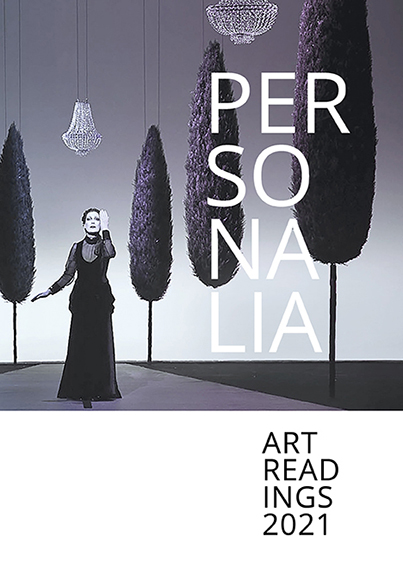Personality and censorship in Georgian theatre of the Modernist Era (The example of Alexander Akhmeteli’s play Lamara)
Personality and censorship in Georgian theatre of the Modernist Era (The example of Alexander Akhmeteli’s play Lamara)
Author(s): Lasha ChkhartishviliSubject(s): Theatre, Dance, Performing Arts, Fine Arts / Performing Arts
Published by: Институт за изследване на изкуствата, Българска академия на науките
Keywords: personality; censorship; Georgian theatre; Alexander Akhmeteli; Gr. Robakidze’s play Lamara
Summary/Abstract: The Reformer of Georgian theatre Alexander Akhmeteli dreamed about creating a “Georgian National Theatre”. He set this goal even before joining the theatre world as a director. He wrote: “Nothing can save us from degradation, except national art and also national theatre, we have had own theatre and I hope we will have it in the future”. By “our theatre” the director meant folk improvised mask theatre “Berikaoba”, which entailed Georgian temperament and rhythm. The establishment of a national theatre would be impossible without national dramaturgy. Lamara by Gr. Robakidze turned out to be the right kind of literary material, on which Akhmeteli could base the staging of one of his masterpieces. A play based on a mythical story was turned into the heroic-romantic show by the director, and eventually became a monument of Georgian intangible culture. Akhmeteli believed that besides the language, the national form should be manifested in rhythm and temperament, transmitting motion, speech or other nuances of the inner world of human beings. National original and folk music, songs, dances and rituals were significantly used in the play Lamara. The play received mixed reactions from the public. Partial society accused the director of an obsession with folklore, striving for exoticism, nationalism and formalism. Eventually, in spite of the great success in Moscow (Rustaveli Theatre was awarded with first-degree diploma at the Soviet Union Theater Olympics) the play was removed from the repertoire, the director was suspended from the theatre, and later arrested, finally he was executed. Soviet censorship did not like Akhmeteli’s approaches to art. Soviet ideologues tried in every way to resist the Georgian National Theatre. Rustaveli Theatre did not obey the censorship. This problematic relationship created a conflict between the government and the National Theatre, which ended tragically. The head and artistic director of the Rustaveli National Theatre Aleksandre Akhmeteli was first arrested and later (1937) sentenced to execution by shooting.
Journal: Изкуствоведски четения
- Issue Year: 2021
- Issue No: 2
- Page Range: 60-68
- Page Count: 9
- Language: English
- Content File-PDF

